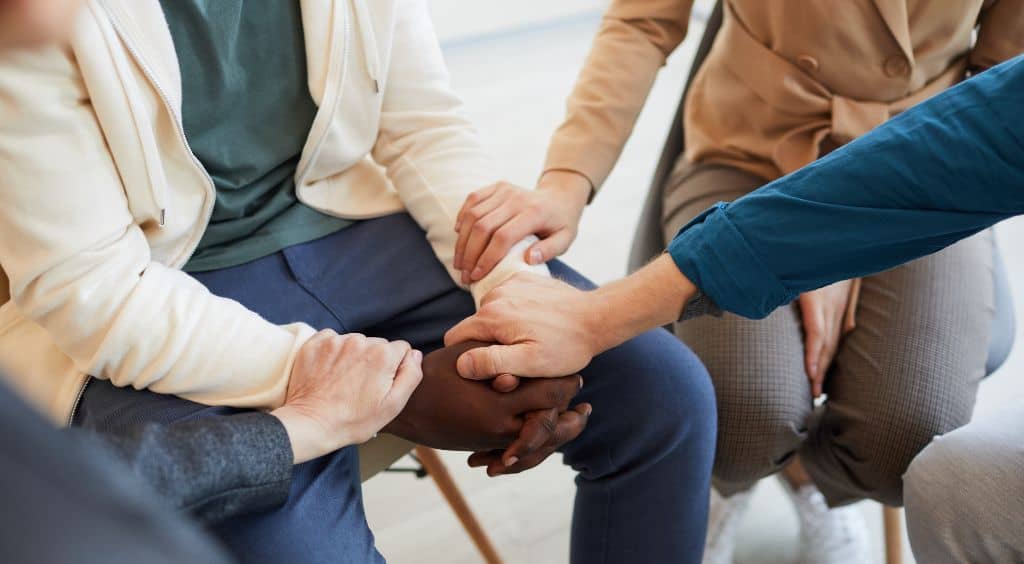What is Life Like After Rehab?
The goal of addiction treatment is to discover the root causes of your addiction, heal emotional wounds, learn healthy coping skills, and prepare for life in recovery. Although your rehab center will help you create an aftercare plan for continued support, navigating life after rehab can be challenging, and you may face numerous obstacles in early recovery.
Sobriety involves more than just stopping the use of drugs and alcohol. It involves changing the way you think, act, and live your life. Your interests, hobbies, and goals may change dramatically when you get sober, and you may begin to feel like an entirely new person. If you’re in recovery, it’s important that you are aware of the challenges you may face and how you can continue receiving support so you can maintain your sobriety.
Common Challenges People Face in Early Recovery
Early sobriety is full of ups and downs. You may feel excited and proud of yourself for getting sober and completing treatment, but you may also feel nervous and scared about navigating life in recovery.
Some of the most common challenges people face when they leave rehab include:
Safe, Supportive Housing
Studies have shown that a lack of a stable, alcohol and drug-free living environment can be a serious obstacle to sustained abstinence. Many people who go to rehab with severe addictions do not have a home to return to as they were either living with family and friends, couch-surfing, or experiencing homelessness.
Even if you have a home to return to after rehab, it may not be suitable for early recovery. For example, if you live alone without support or live with someone who is still using drugs or alcohol, it may not be the best choice for you to return home. Going home directly after rehab can be triggering for anyone, and returning to the same environment that you used to get high in isn’t always good for your mental health.
Most people find that the best option is to stay in a sober living home until they feel more confident in their recovery and living situation.
Employment
While laws like the Family and Medical Leave Act (FMLA) and the Americans with Disabilities Act (ADA) can protect your job during rehab, not everyone qualifies for extended work leave, so some people have to sacrifice their job to get the help they need.
Other people who come to rehab do not have a job or are working a job in an industry that they can easily quit and get rehired somewhere similar. Some people quit their jobs to go to rehab so they don’t have to worry about pressures from work or deadlines to return to work.

At the same time, a lot of people who go to rehab have large gaps in their resumes or criminal backgrounds, both of which can make it difficult to obtain employment.
Fortunately, a reputable addiction treatment center will offer case management and recovery coaching services that can help you build a resume, develop work-life skills, and find work.
Family, Friends, and Relationships
Addiction affects more than just the person suffering–it also affects family, friends, and other loved ones. There are many ways your relationships may be affected by your addiction. Some of your friends may be angry with past actions of yours, some of your family may take time to begin trusting you again, and your significant other may be concerned about your continued recovery.
It’s important to remember that it may take time for your loved ones to not only trust you again but also to adjust to the changes you are making in your life. However, sobriety is a great time to start repairing broken relationships. You can start by being honest with your loved ones about your recovery. Talk to them about your struggles and successes. Show them the changes you have been making to improve yourself. You may also invite family to a family therapy session with your counselor to resolve any lingering issues or miscommunication.
As time goes by, you will be able to repair your relationships and watch them grow.
Cravings
Craving, or intense desires to use drugs and alcohol, are a normal part of recovery. Cravings may come and go, but they can last for a long time. It’s important to practice healthy coping skills to deal with cravings so you avoid the temptation of relapse. Unfortunately, cravings are a leading cause of drug and alcohol relapse.
Adjusting to a New Routine
Life after rehab will look very different than life before and during rehab. Before rehab, you may not have had a routine that you stuck to because your life likely revolved around drugs or alcohol. During rehab, you had the supervision and guidance of behavioral health technicians who told you what to do and when. However, after rehab, you are left to yourself to make your own decisions regarding your sobriety.
It takes time to adjust to a new routine, so it’s important that you stay patient and forgive yourself for any mistakes. Recovery is a slow journey that evolves each and every day. Don’t expect miracles to happen overnight.
Aftercare Solutions to Help You Stay Sober After Rehab
The best way to cope with the challenges that life may bring your way after leaving rehab is to participate in comprehensive aftercare. Aftercare services can help you stay on the right path, make healthy decisions, and stay accountable for your recovery.
Some of the most helpful aftercare services are:
Sober Living
Sober living homes provide safe, supportive, and drug-and-alcohol-free housing for people recovering from addiction or alcoholism. Homes typically consist of one person who enforces the rules, such as a house manager, and 4-6 residents. Residents are encouraged to support one another in their journeys.
Sober living homes typically have strict rules that promote healthy schedules and positive coping skills. For example, you will have to take random drug tests, get home by curfew every night, pay your rent on time, and complete chores. You may also be required to attend a certain number of meetings each week.
Alumni Program
Many addiction treatment centers have an alumni program that gives former patients opportunities to connect with one another and gain support. Alumni programs may serve people in all stages of their recovery, whether they finished rehab two days ago, several months ago, or a few years ago. Group members may participate in a variety of activities, such as:
- Alumni-led meetings
- Team-building events
- Educational workshops
- Team sports
- Holiday celebrations
- Community outings
The nature of an alumni program may vary from one rehab center to the next. Most rehab centers have their own special ways of supporting alumni.
12-Step Groups and 12-Step Alternatives
Peer support is one of the most important parts of recovery. Having support from like-minded peers can inspire you to make healthy decisions and alleviate feelings of isolation or alienation.

Some of the most popular support groups in the United States are based on the 12-Steps. The 12-Steps originated in Alcoholics Anonymous (AA), but other groups use the 12-Steps, too. Other 12-Step groups besides AA include:
- Cocaine Anonymous (CA)
- Heroin Anonymous (HA)
- Narcotics Anonymous (NA)
The 12-Steps are a spiritual basis for living sober and they can be highly effective. However, the 12-Steps may not be suitable for everyone. 12-Step alternative groups that provide support and fellowship to people in recovery include:
- SMART Recovery
- Celebrate Recovery
- Refuge Recovery
- LifeRing Recovery
All support groups can be effective as long as you use them.
Outpatient Counseling
Recovery is a continuous process, and as you grow in your sobriety, you may face new challenges that you need help with. There is no shame in seeking continued outpatient or mental health counseling. Counseling is a great way to make sure you’re staying on the right track.
You can seek counseling through your recovery center or choose your own independent counselor who specializes in the issues you are struggling with.
Recovery Coaching
Recovery coaching is an underutilized resource that can help people in recovery stay sober. A recovery coach is not a sponsor–they do have some formal training and they don’t take you through the 12-steps, but they also aren’t a therapist or counselor. A recovery coach is someone who helps you make decisions about your recovery.
For example, a recovery coach can help you:
- Find local support meetings
- Develop a resume
- Find job fairs or secure employment
- Find a local sober living home
- Make difficult decisions regarding your daily routine
Many recovery coaches are in recovery themselves, so they can share their personal experiences to further guide you through your sobriety.
Tips for Navigating Life After Rehab
In addition to active participation in an aftercare program, there are small lifestyle changes you can make that may support better mental health and help you prevent relapse. Tips that may help you stay sober in early recovery include:
- Eat a balanced, nutritious diet
- Get plenty of restful sleep
- Follow a regular sleep schedule
- Get healthy amounts of exercise
- Spend a few minutes in the sunlight each day
- Practice healthy coping skills such as journaling, yoga, or meditation
- Call 1-2 people in your support group each day
- Attend several 12-step or recovery-based meetings each week
- Don’t hesitate to ask for help when you need it
- Focus on staying sober one day at a time
Get Help Now
Here at Arise Treatment Center, our unique addiction treatment program is designed to help you understand the root cause of your addiction so you can move forward with a sober, fulfilling life. However, we know that treatment doesn’t cure addiction. No matter how long you spend in rehab or how much effort you put in, recovery is a lifelong journey. That’s why our team is dedicated to helping you every step of the way.
Your contact with us doesn’t stop when you complete your treatment program. We offer a full menu of aftercare support services that can help guide you through early recovery.
If you or a loved one are struggling with addiction, please contact us today. A compassionate admissions specialist is standing by, eager to take your call.


